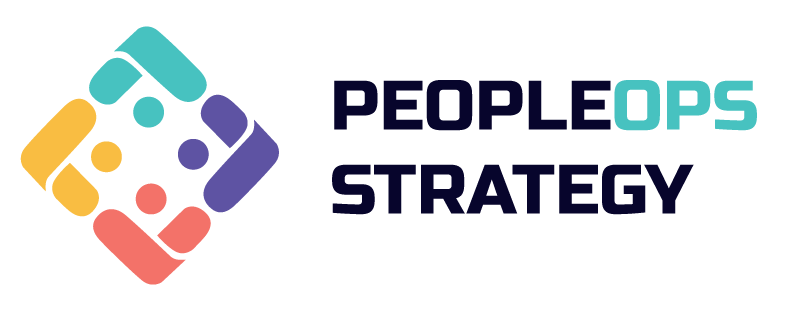
Setting Clear Goals for Your Team
Defining Expectations
When you’re a supervisor, it’s super important to set clear goals for your team. This helps everyone know what they need to do. Clear goals make it easier for everyone to understand what success looks like. This is a big part of any good HR Strategy and Leadership Development plan. When you define expectations, you help your team focus on what’s important. This is a key part of Manager Training and helps build strong Managerial Skills.
Aligning Goals with Company Vision
Your team’s goals should match the company’s big picture. This means making sure what your team is working on helps the company reach its overall goals. Training Programs can help you learn how to do this. When your team’s goals align with the company vision, everyone works together better. This makes your team more effective and helps the company succeed.
Tracking Progress and Providing Feedback
Once goals are set, it’s important to keep track of how things are going. This means checking in regularly to see if the team is on track. Providing feedback is also key. Let your team know how they are doing and what they can improve. This helps everyone stay focused and motivated. Regular check-ins and feedback are essential parts of Manager Training and Leadership Development. They help you build strong Managerial Skills and keep your team moving in the right direction.
Rewarding and Recognizing Employees
Types of Recognition Programs
In any workplace, recognizing employees is super important. It helps build a positive work environment and boosts employee engagement. There are many ways to recognize employees, like giving out awards, bonuses, or even just saying thank you. These programs can make a big difference in how employees feel about their jobs and their workplace relationships.
Impact of Rewards on Employee Motivation
When employees get rewards, it makes them feel valued and appreciated. This can lead to better employee retention and a stronger organizational culture. Rewards can be anything from a simple thank you note to a big bonus. The key is to make sure the reward matches the effort. This helps keep employees motivated and engaged in their work.
Best Practices for Effective Recognition
To make recognition programs work well, it’s important to be consistent and fair. Make sure everyone has a chance to be recognized, not just the top performers. This helps create a positive work environment and improves employee/manager dynamics. Also, try to personalize the recognition. Knowing what each employee values can make the recognition more meaningful. This is a big part of HR best practices and helps in overall workplace improvement.
Maintaining Open Lines of Communication
Importance of Transparency
In any workplace, it’s super important to keep everyone in the loop. When people don’t know what’s going on, they can get anxious and start guessing. This can lead to trust issues and even rumors. Workplace communication helps everyone feel more secure and focused on their tasks.
Active Listening Techniques
Listening is just as important as talking. When you really listen to your team, they feel valued and understood. This means putting away distractions and giving them your full attention. It helps build trust and makes your team more willing to share their thoughts and ideas.
Creating a Culture of Open Dialogue
Creating a space where everyone feels safe to speak up is key. Encourage your team to share their ideas and concerns without fear. This kind of open dialogue can lead to better solutions and a more positive work environment. When everyone feels heard, the whole team benefits.
Balancing Accountability and Authority
Empowering Employees
Effective supervision means giving your team the power to make decisions. When employees feel trusted, they are more likely to take ownership of their work. Empowering your team can lead to better results and a happier workplace. It’s important to provide the right tools and training so they can succeed on their own.
Establishing Clear Boundaries
Setting clear rules helps everyone understand what is expected. This makes it easier to hold people accountable. When everyone knows the limits, it reduces confusion and helps the team work better together. Clear boundaries also make it easier to spot when something goes wrong and fix it quickly.
Handling Mistakes and Learning Opportunities
Mistakes happen, and that’s okay. The key is to learn from them. When someone makes a mistake, use it as a chance to teach and improve. This helps build a culture where people aren’t afraid to try new things. Learning from mistakes can make your team stronger and more innovative.
Balancing accountability and authority is key to a successful workplace. When managers have the right amount of power and responsibility, teams thrive. Want to learn more about how to achieve this balance? Visit our website for expert advice and services.
Conclusion
In wrapping up, it’s clear that effective supervisor training is a game-changer for building stronger employee relationships. By setting clear goals, recognizing and rewarding efforts, and keeping communication lines open, supervisors can make a huge difference. Encouraging teamwork and balancing authority with accountability also play key roles. Remember, being a great supervisor isn’t just about managing tasks—it’s about leading people to the right answers and helping them grow. So, take these tips to heart and think about how you can make a positive impact on your team every day. After all, the effort you put in now will shape the future of your workplace. What kind of leader will you choose to be?




